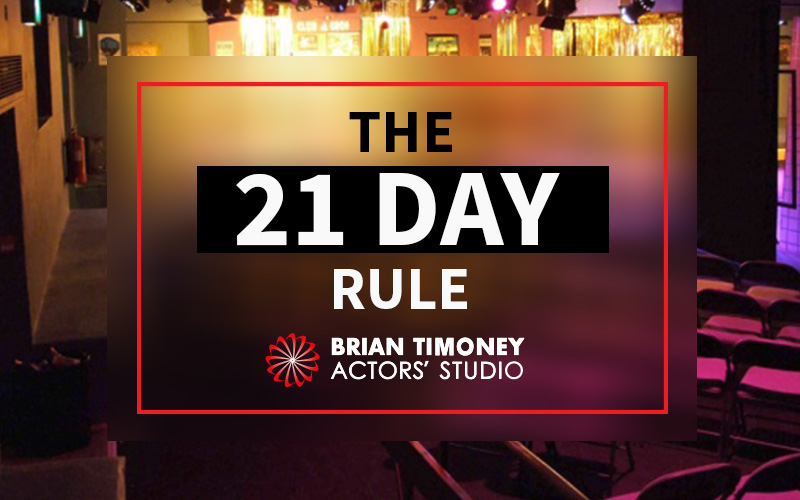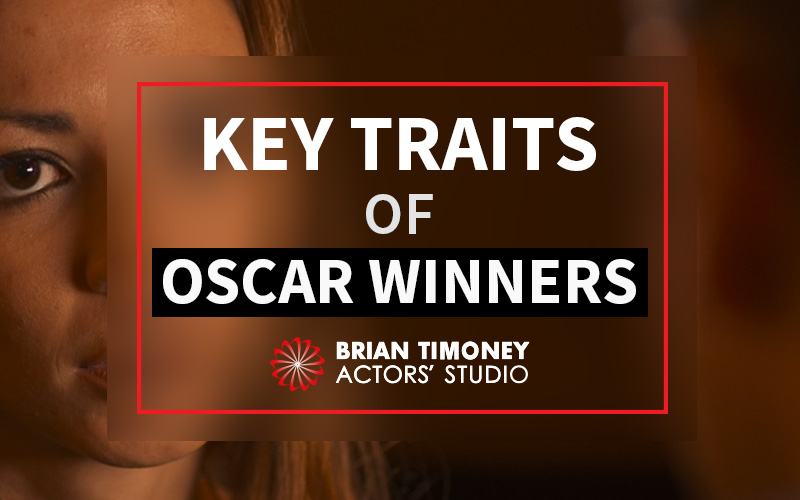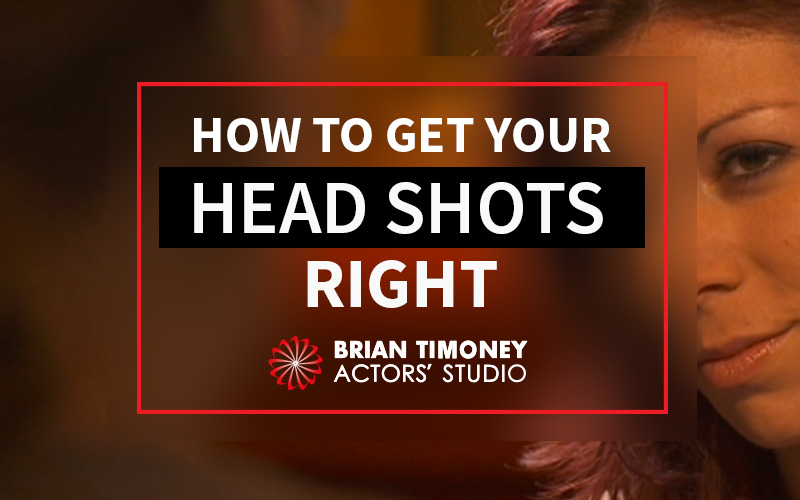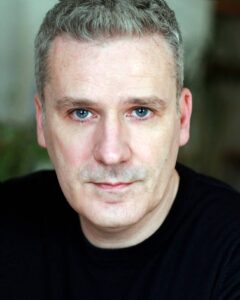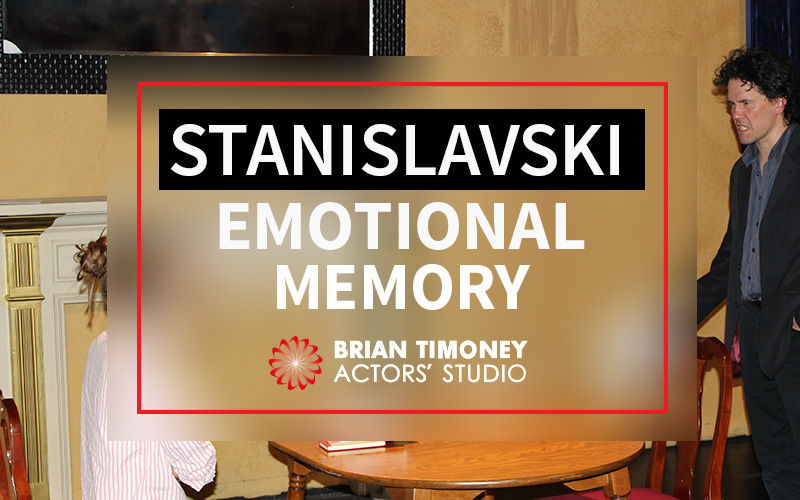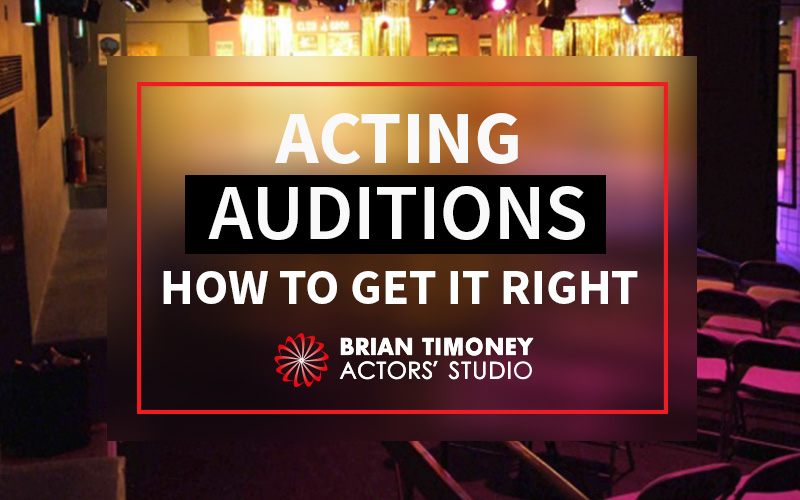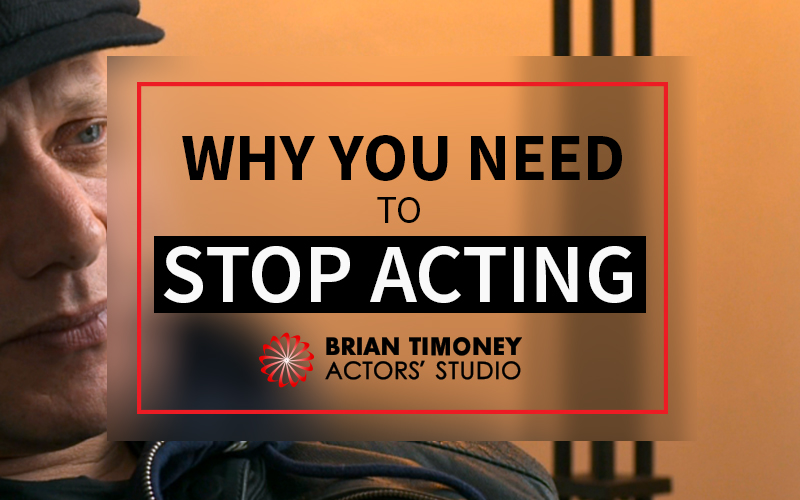“The habits of highly successful people allow them to consistently perform behaviors that breed success.” – Forbes
It is often said that it only takes 21 days to form a new habit. In other words, make yourself do anything routinely for 21 days and after that period you will do it automatically- habitually. It’s a pretty powerful idea if you think about it: working at it for such a short period could make you a lifelong smoker, or finally help you quit.
When it comes to acting, it’s important to give yourself time to learn and practice new skills, techniques and material, and forging a habit to help you do that automatically can be incredibly useful.
Busting the Myth
The theory that it only takes 21 days to start a lifelong habit began with Dr Maxwell Maltz in the early 1960s. Working as a plastic surgeon, he observed a phenomenon that seemed to form a pattern. For most of his patients, it would take them around 21 days to get used to their new feature, or lack of one – whether it was a lost limb or a new face. He also began to see this in other settings too, such as it taking around 3 weeks for most people to settle into a new house.
He published his thoughts on the subject in the preface of his popular book Psycho- Cybernetics in 1960. Out of this largely anectdotal evidence was born the idea that it only takes 21 days to build a habit.
Although this idea really picked up speed, and continues to be a common belief today, scientists have been quick to disprove this theory, with UCL finding in a 2010 research study on habit formation that it took an average of 66 days for their participants to form a habit after monitoring them for 12 weeks.
In general it is agreed that it can take significantly longer than 21 days to form a new habit, and just how long depends upon the individual. However, it is still very possible to build your own habits, and you can definitely use this to your advantage.
The Importance Of Being Motivated
Before you think about how you’re going to build up useful habits, you need to consider what behaviour you really need to work on and why, whether this be in the acting world or not.
Once you have a clear idea of the ‘thing’ you want to put into your daily routine, and really understand why you want it and how it will be useful to you, building the habit itself will be easier, and you will find yourself far more motivated.
For example; say you want to get in the habit of jogging every day. You may decide to do this because you generally want to be healthier. However that thought alone is unlikely to get you through the long process of creating a habit out of it.
Instead you need take some time to think about why you really want to jog every day: perhaps it will give you some breathing space from work, or help you get in shape for a role. Imagine yourself having achieved your goal of making that habit and how much better you are for it. Having that image of a future, better you, will give you something to aim for, and a reason to keep going when it’s cold outside and your legs still ache.
Getting In The Habit: How To Achieve It
So you know what habit you want to add to your routine and how it will benefit you. You also understand that it may take you longer than the expected three weeks to get there, but still believe it’s worth it. So how does one build a habit?
1. Start Simple
Whatever your habit of choice, go easy on yourself. If you want to spend some time every day practicing affective memory, for example, gradually build up the time you give yourself for it. So on day one, put aside two minutes, then four minutes for day two and so on. Starting slowly allows you to settle the habit into your routine nicely, without putting too much of a strain on yourself.
2. Fit it into your existing routine
For a habit to stick it needs to find a place in your daily routine that doesn’t disrupt any of your usual activities. Waking up early to do yoga instead of getting your usual 8 hours sleep, for example, is a habit that won’t even last a week due to the disruptive effect it would have. Instead find a gap in your day, and perform the habit consistently at this time. You are far more likely to be successful, and you should feel no negative or irritating changes in your daily life as a result.
3. Trigger it with other behaviours
When you’re fitting something new into your routine, an obvious problem may occur: you might simply forget about it. As a result, it can be a useful trick to set up ‘behaviour chains‘. All habits are triggered by cues, and understanding this means you can use it to your advantage. So if you want to create the new habit of writing a blog post before bed, for example, you can train yourself to think of your blog whenever you put on pyjamas. Pretty soon the cue will be automatic and you will reach straight for your laptop without even having to think about it.
4. Eliminate other options
This can be understood easily enough: if you want to eat healthier, throw away all the junk food in your house. Likewise, if you want to practice an acting technique for an hour in the afternoon, turn off your phone and avoid other similar distractions. Taking away your option to ‘cheat’ is can be one of the best ways to ensure a habit sticks.
5. Don’t expect to be perfect
There will be days when you forget to practice your chosen behaviour, or even days you can’t face it: in such circumstances you should never give up. After all, you’re only human, and you aren’t a machine with useful habits built in. Try again the next day, and things will become easier, even if they don’t seem to be at first. Be patient and soon your habit will help you to become the person you truly want to be.
“Acting is not about being someone different. It’s finding the similarity in what is apparently different, then finding myself in there.” – Meryl Streep
For aspiring film actors, winning an Academy Award (more commonly known as an ‘Oscar’) is the ultimate accolade. It shows that you are capable of performing at a level few other actors are able to achieve and is the ultimate seal of approval from the film industry. But what makes an Oscar-winning actor? What skills do they have in common that makes them first among their peers? Well, for many of them, it comes down to their familiarity with ‘The Method’.
Over 80% of Best Actor Academy Awards this century have been won by method actors who use The Method to take their performance skills to a level beyond what most non-method actors can achieve. There are many aspects to mastering The Method, but there are several key characteristics that we see time and time again in Oscar-winning method actors that are well worth emulating on your road to success.
Over 80% of Best Actor Academy Awards this century have been won by method actors
Dedication to character
Method actors will often go to great lengths to create an authentic performance. In preparation for his Oscar-nominated leading role in Taxi Driver, Robert De Niro actually worked as a cab driver, reportedly putting in 12-hour shifts driving fares around New York City to get into character.
Another common technique is to look to the animal kingdom for inspiration. Many followers of The Method base their physical approach to a role on different animals to give their characters unique and arresting ways of moving. For Taxi Driver De Niro based his performance on a crab as he felt his character was indirect and tended to shift from side to side. As Stanley in A Streetcar Named Desire, Marlon Brando imitated an ape, while Dustin Hoffman referenced a weasel in Midnight Cowboy. Method Acting training includes specific classes focusing on animal work to help actors master this important dramatic tool.
Using genuine emotions
Affective memory is a technique method actors learn, which allows them to tap into their own memories to create real emotional responses during a performance. This is achieved by working out the emotion they need to portray and then using experiences in their own life that triggered similar feelings in order to produce a genuine emotional response that recreates those feelings.
To do this, actors need to really know themselves, their own psyche, and how to explore this for dramatic effect. Learning to be a method actor involves learning to better know yourself and your own emotions and how to use your life experiences to create truly raw, engaging performances.
Tapping into their own life experiences
Of course, most actors will be called upon to act in scenes that have no direct analogue in their own lives. The trick is to understand how to successfully relate the emotions you need to convey with a relevant experience in your own life, even if the connection is not immediately obvious.
When filming the famous Russian Roulette scene for the film Deer Hunter, Christopher Walken said he was recalling being sent to summer camp by his parents, which he hated. He was able to use those feelings of being betrayed, ostracised, and alone to inform his performance in a totally different scenario because it required the same feelings from his character.
Strong self-discipline
All of this focus on emotions might make it sound like method actors are likely to be volatile or in danger of going out of control at the drop of a curtain. In fact, successful method acting requires serious self-discipline. Learning The Method involves a great deal of time, effort and concentration in order to be able to call up the right emotions at the right moment. Through this learning process, method actors become truly in control of themselves and their emotions in a way most regular actors will never achieve, giving them an advantage both as performers and in their overall work ethic.
Willingness to sacrifice their ego
Actors can have a reputation for being egotistical, but the truly great performers don’t worry about how they are perceived, only about the best way to play their characters with absolute truth. To lose yourself in a character like this, you have to be willing to put aside your own ego, no longer thinking about yourself and your self-image, but focusing purely on becoming your character.
Robert De Niro offers another great example here, with the extreme physical transformation he underwent for his role in Martin Scorsese’s Cape Fear. De Niro completely changed his appearance, including building an impressively muscular physique, covering himself in tattoos and even having a dentist grind down his teeth. This level of dedication to really becoming his character resulted in an incredible performance that shows just what a dedicated method actor can achieve with the right training and attitude.
Are you ready to unlock your hidden acting potential? Register your interest in one of our industry-leading method acting classes today and find out how to make your ambitions of a rewarding professional acting career a reality. We are always happy to hear from prospective students, so if you have any questions, please don’t hesitate to get in touch.
Head shots are an essential part of any professional actor’s arsenal as these are often the thing that first get a casting director interested in you for a role. Having professional-quality head shots is therefore vital when trying to break into theatre, film or television performance, but there’s more to a great set of head shots than just getting some snaps of your face from a couple of angles.
There are numerous mistakes rookie actors can make with their head shots, some of which we see time and time again. Agents and casting directors see dozens if not hundreds of head shots every week, so the slightest mistake can quickly see your image consigned to the bin in favour of one of your many, many competitors. You need to make sure you don’t give them any reason to reject you out of hand. To make sure your head shots do the job and start getting you the auditions you need, there are some key mistakes you really need to avoid.
Don’t get carried away with Photoshop
We all want to look our best in our head shots. They’re the first impression casting directors and other decision makers will get of us and, after all, everyone is doing it, right? As tempting as it can be to engage in a little bit of Photoshopping to smooth out minor blemishes and help get your foot in the door, you must beware!
If you start touching up your head shots, you can end up creating false expectations. If you get called to an audition, only for the casting director to see that you look nothing like your photo because you got carried away with making little improvements, they’ll soon show you the door. Remember, they’re looking for the face they’ll be putting in front of audiences, not an idealised version of it, so if your actual face doesn’t match the head shots that got their interest, you’ll be wasting your time and theirs. You will also potentially ruin your reputation, making it less likely you’ll get called to auditions in the future.
Avoid artificial posing
It can be tempting to think you need to make yourself stand out by doing something unusual or striking in your head shots. Do not do this. There is a classic formula for head shots that you really need to stick to. Your picture should be shot from the top of chest up so the focus is firmly on your face, with a neutral expression or small smile. Do not be tempted to put a hand on your face as you may have seen in some clichéd old head shots.
The idea is to show what you look like in a simple, professional way, highlighting what you have to offer. Anything you do that deviates from the norm simply acts as a distraction and can make it harder for casting people to focus on your actual qualities. This also goes for excessive make-up or outlandish clothes which could pull people’s attention away from your underlying characteristics.
Remember: use an amateur and look like an amateur
Getting professional-quality head shots costs money, which can be off-putting to new actors trying to break into the field. With pretty much everyone having cameras built into their phones now, it can be tempting to think you can take your own head shots, or get a friend to do it, saving you a tidy sum. The problem is, even with the best camera in the world, you or your friend are unlikely to have the necessary skills to get professional looking head shots.
A professional photographer who specialises in head shots will know all the tricks to get you looking your best, including selecting the right lighting, framing, make-up and clothes. They’ll also know how to get you into the right pose and bring out the qualities that make you unique, which ultimately are what a casting director is looking for. Finally, a true professional will know how to use the right filters, lenses and just the right amount of Photoshop to give your head shots a professional gloss. All this means you’ll give the right first impression when your picture lands in a casting director’s hands.
A great set of head shots is just one of the things you’ll need to become a successful professional actor. As well as working with the UK’s top method acting teacher, our One Year Ultimate Acting Program incorporates a career development package. This includes head shots, CV creation assistance and everything you need to take the method acting skills we teach out into the real world. Get in touch today to find out more.
“The person you are is a hundred times more interesting than the best actor you could ever become…” – Konstantin Stanislavski
A name recognised even by non-actors, Konstantin Stanislavski and his ‘System’ of method acting is responsible for the success of theatrical heavy-hitters such as Philip Seymour-Hoffman and Daniel Day-Lewis.
However, you don’t need a double barrelled surname to master the dramatic techniques of the system – you only need to have a basic understanding of human emotion. In this way, at least acting jobs are safe from robots.
Method acting asks not that you “act,” but rather that you:
“put life into the imagined circumstances and actions until you have completely satisfied your sense of truth.”
It’s been argued that since the inception of acting, many centuries or even millennia ago, we have recognised that a piece is most effective when the actor truly feels the emotion they’re trying to convey. Aristotle himself swore that:
“the secret to moving the passions in others is to be moved oneself”.
One way of doing this is through emotional memory.
Emotional Memory
Also called Affective Memory, this technique asks us to forget about “acting” out emotions. Feeling emotion is such a visceral part of the human experience that it is at the same time universal and difficult to fake. Because it’s universal, though, you don’t have to fake it – just remember it.
A form of Emotional Memory we have probably all practiced is “crocodile tears”. Think back to when you were a child, trying to make yourself cry to get more pudding, to go home, or to get your sibling in trouble. You probably made these “crocodile tears” by thinking of something sad, like the death of a beloved pet. This is the Stanislavsky system in action.
To summarise: Emotional or Affective Memory asks the actor to call on a memory similar in detail or sensation to their character’s situation. Through empathy, the actor lives the character rather than simply reciting it.
Empathetic Emotional Memory
The aim of Emotional Memory is to feel the emotion your character is going through, but you might not even need a real memory – just an exceptional sense of empathy. Something you saw or read about might evoke your character’s emotion better than the script.
For example; if your character is feeling outraged because someone got a promotion over them, you might not relate. However, you might feel similarly outraged when you remember that since being fired from Top Gear, Jeremy Clarkson has become the highest-paid TV host in Britain.
Although this situation does not directly affect you, it can still cause a deep sense of indignation. This is enough. So long as you feel the emotion of your character – no matter how you get to it – you are enacting the Stanislavsky system.
Sense Memory
Sense Memory, popularised by Lee Strasberg, is a variant of Emotional Memory. This take on the Stanislavski system asks that the actor take time out to recall every detail of their memory. They must remember not just the emotion, but what they heard, tasted, touched, smelled, and saw whilst feeling it.
The effectiveness of recollecting physical sensations in Emotional Memory is still highly debated, but modern Stanislavski academics such as Strasberg suggest it can help actors completely relax into the memory.
Exercises
Sense Memory
Practicing Sense Memory can help ease you into practicing Emotional Memory. To begin with, try to remember an instance of each sense:
See –
Your mother’s face, in as much detail as possible.
The outfit you wore to your first school formal.
A starry sky.
Hear –
Rain against the roof.
Waves on the shore.
Your alarm clock.
Smell –
Smoke from a bonfire.
Freshly baked bread.
Wet dog.
Taste –
Chocolate.
Buttery toast.
Vinegar.
Feel –
A hot mug of tea in your hands.
A cold shower.
A blush spreading across your cheeks.
Emotional Memory
Now that you’ve exercised your Sense Memory, it’s time to practice recalling emotions. Use the senses to ease yourself into Emotional Memory.
We’re going to use the emotion of joy. Try to remember a moment in your life you felt joyful. For example: when you were accepted into university, when your partner first said “I love you,” or maybe just a really good breakfast.
Write it down in detail, using each of the five senses.
Now that you’re experiencing Emotional Memory, practice acting out a short monologue or scene that requires joy. Here’s one from The Perks of Being a Wallflower.
Be Careful
Toward the end of his time, Stanislavski began to doubt the safety of Emotional Memory. The method was exhausting and could have negative side-effects if the actor drew on bad memories without a therapist or counsellor.
There is a danger that you might “go to a dark place,” like Heath Ledger is infamously rumoured to have done. The method asks you not to force a memory, or use one that could hurt you. Stanislavski asks that you don’t “assault the subconscious”. Past memories are preferable to present situations as they’re more controllable .
With that warning in mind – best of luck. Remember the good times and re-live them.
The first step to a better audition is to give up character and use yourself.
~ Michael Shurtleff
Actors all have one thing in common – they all have to attend acting auditions to get a part. Whether it’s for the lead in a TV series, a part in the chorus ensemble of a West-End show or a walk-on part in a movie, all actors must impress in an audition in order to get the part. Even some of the greatest Hollywood actors will most likely have to read and be screen-tested before being handed the lead in a movie.
Do the best actors always get the best parts? No.
Unfortunately the acting industry is not always very fair, but then very few types of business are. Therefore actors need to know the greatest tips and tricks of the profession in order to come across well and win over an audition panel before landing that part in a production.
Audition Preparation
This may sound obvious but when it comes to acting auditions, preparation is absolutely key. Confidence will certainly get you a long way, but you can’t just blag your way through auditions. Panels are looking for something special, so it is vital to be fully prepared both in the material that you present and in your delivery of it.
Choosing Your Acting Audition Pieces
In a typical audition you might be asked to prepare two or three audition pieces that are each roughly two minutes long. Always check the guidelines to see if there are any restrictions on the type of material that you’re allowed to present. You may be asked to select pieces that are of contrasting styles so that the acting audition panel is able to see a range in your acting abilities. Try to be imaginative with the speeches that you choose so that you are able to impress the panel with your eye for an interesting scene.
Learning Your Lines
Once you have selected your performances, it is imperative that you learn the lines and memorise them to perfection. You may be offered direction during the audition that is different to the way you’ve learnt the part, so be sure that the lines are embedded into your brain so that you don’t lose your way if asked to play a variation of the role.
Many actors learn their lines through repetition. Although this is an effective way of getting the words right, it can be detrimental to your acting. Your muscle memory will in fact remember not just the lines, but also the rhythm, cadence and tone of voice that you use. This can result in a speech that sounds as if you’re reading it straight from the script. In order to give a convincing performance, excellent method actors deliver their lines as if they’re saying them for the first and last time. One way in which actors can memorise lines as well as being able to recall them more naturally, is to learn them by rote. This technique involves saying the lines repeatedly using a monotonous tone that eliminates any kind of emotion. When you need to remember the lines in a scene, there is no muscle memory attached to the words so actors are able to deliver them spontaneously as if for the first time. The way in which the lines are said can then change in each and every performance that an actor gives.
Watch Your Own Performance
Before attending acting auditions, it is a good idea to time the length of your speeches at your own natural performance speed so that you’re aware it fits within the requested duration. Directors normally pay by the hour for rental of a studio or theatre for audition purposes so they won’t want to overrun just so that each and every budding star can finish their long-winded scene in full.
If possible, it is also a good idea to film your own rehearsals at home. You could either do this by yourself or by asking a willing friend or family member to help you out. By watching your performance back you will get a better idea of any areas that you can improve upon or eliminate entirely.
Calming Your Nerves
Acting auditions can be nerve-wracking, so it is essential that you use some relaxation and calming techniques in order to prepare for your performance. Often you may be ushered into a waiting room to sit amongst other actors who are auditioning for the same part as you. Some actors may strike up a friendly conversation with you in order to calm their own nerves. Others may do so to try and throw you off your own game. It is best to concentrate on your own audition preparation, so bring something along to keep you independently focussed and calm before going in. This might be a puzzle, a magazine or even an adult colouring book which is known to promote relaxation. Method actors such as Meryl Streep, Robert DeNiro and Jack Nicholson always use specific relaxation techniques before going on stage which combat tension and nerves.
One of the most effective Method relaxation activities is the ragdoll exercise. This involves an actor sitting in a chair with their eyes closed. They must sit upright with their head bowed and then release their whole body like a floppy ragdoll. Parts of the body that still feel tense must be moved slowly in a circular motion, starting from the head and going down to the toes. Vocally, actors should let out an ‘Ahhh’ sound, with the occasional forceful ‘Huh’ to release inner tensions. This should be followed by more circular rotations of body areas from the head and neck, through the limbs, hips and down to the toes again. Initially actors should aim to do this for twenty minutes before a performance or audition, but this should be extended so that they eventually reach forty minutes of total relaxation.
The Audition Panel
The audition panel wants to like you. They’re going through the audition process because they have a problem to solve – trying to find actors to fill their roles. So it is your job to help them to pick you and therefore first impressions are extremely important. Try to do your research about the audition panel before you meet them. Find out the names of the director and casting director so that you’re able to ‘google’ them to find out what they’ve worked on and a bit about them. You may be asked questions following your performance which is another excellent opportunity to prove to the panel that they want to work with you. Much like any other business, the panel want to hire people that they like and can imagine working with. Confidence is vital as an actor but make sure that it doesn’t come across as arrogance. Treat the panel with courtesy and respect but try not to come across as being nervous.
Your Performance
When you enter an audition, you will normally see a large taped ‘X’ on the floor. Go and stand on it and introduce yourself with confidence and eye contact.
During your performance you should of course move around the stage and avoid being rooted to the spot. If you need to pretend that you’re speaking to another character, then envisage that person downstage and slightly to the side of the panel. It is important that you don’t address or try and engage with the panel during your piece unless you have been specifically requested to do so. The panel wants to observe and evaluate you on your performance, not to become part of it. When you have finished your acting audition, don’t bow or announce that it is the end. Instead, stay still for a moment before relaxing back into your natural stance so that the panel is aware that your audition is complete.
Successful Acting Auditions
Whether your acting auditions are successful or not largely depends on your ability to connect with the role that you’re playing. It is essential that you really pinpoint and portray the emotions of the part you’re reading. Try to summon an emotional experience that connects you to the character at that particular moment in their life. Method acting techniques will enable you to tap into that raw emotion on-demand and deliver it onstage.
All of the great method actors of today have been in your shoes at some stage during their career. None of them were born with an Equity Card, but many of them trained at professional method acting schools. If you’re starting out as an actor and want to make it your full-time career, then consider investing in some professional method acting training to help you stand head and shoulders above the rest at both acting auditions and in your performances. We currently run two courses to help aspiring actors who are serious about entering the profession. The first is a three day bootcamp which is designed as a taster to learning The Method. Actors will learn how to inspire themselves on-demand and create both real and emotional performances. Those who are interested in more of a serious commitment to launching their method acting career can apply to join the Ultimate Acting Programme which is designed to kickstart their entrance into the top 5% of the acting profession. This part-time, one year course includes comprehensive and challenging method acting training as well as a bootcamp in LA which includes a session with a Hollywood casting director.
If you have the commitment and desire to become a fantastic actor, then register your interest for one of these elite courses today.
“With any part you play, there is a certain amount of yourself in it. There has to be, otherwise it’s just not acting. It’s lying.”
–Johnny Depp
Many people see acting as one great big game of make-believe, with actors spending their lives playing at being other people. While in once sense this is true, creating truly exceptional performances is about moving beyond the idea of playing a character to truly become your character. This is what we mean when we say that you need to stop acting and “get real”.
Method acting allows you to dramatically (no pun intended!) improve your performance skills so you can truly become your characters, both in your own mind and the minds of your audience. When you learn how to method act, you gain a whole new range of skills to help turn you into the consummate performer you need to be for a successful career as a professional actor.
Understand how your brain works
Our brains work in different ways when carrying out different tasks. The logical, analytical parts of our brain work best with written and verbal information while the emotional, creative side of our brain responds more to images and our senses. When becoming a character, we need to use that emotional, creative side to inform our performance.
We do this by tapping into our memories, recalling images and sense memories to help trigger the emotions we need to build our performances. By understanding how our brains work, we can give ourselves a palette of real emotions to work with on command. Method acting allows us to do just that, giving us the techniques to effectively tap into our brains hidden potential.
Produce real emotions on demand
Method acting training involves learning to control this process of emotional recall to inject real truth into a performance. The process of doing this is known as affective memory and works by taking experiences from our own lives and deliberately recreating the emotions associated with those experiences.
Learning to control this process requires a great deal of self-discipline, but, once mastered, affective memory allows you to create performances that will be utterly convincing as they are anchored in truth. Audiences can always tell when an actor is faking it, so learning to create genuine emotions reliably and on demand is a key skill for any professional actor.
Create believable characters
The ultimate goal of method acting is to create characters who are totally believable to an audience. Injecting real emotions into your performance is a key part of this process, but there are also a number of other ways The Method can help you learn to create convincing characters on stage, on film or in any other kind of performance.
Method acting helps you to understand your own personality, providing a model for creating characters, but also helping you unlock your own psyche as a mine for “psychological truth”. Developing a coherent and truthful psychological blueprint for your characters will make them far more real to you, and therefore, much more believable to your audience.
Establish convincing relationships
One of the key things that defines any character is the way they interact with other characters. Convincing relationships between characters can help sell a performance and ensure that your audience are fully invested in the narrative of the story you are bringing to life. Learning method acting includes learning how to develop believable relationships with your fellow actors, which often involves as much work off-stage or off-screen as on.
For his Oscar-winning performance as the Joker in The Dark Knight, Heath Ledger reportedly refused to break character during the entire shoot. He also sent his co-stars various bizarre and offensive things in order to keep people appropriately unsettled around him. The idea was to provoke honest reactions from his co-stars that would imbue his scenes with them with emotional truth, helping to sell those relationships to the audience.
Bring your characters to life
Acting isn’t just about learning lines and repeating them on cue, it’s also important to master the physical aspects of bringing a character to life. One of the key method acting techniques for enhancing your physical performance is animal exercises. These focus on imitating animals, incorporating elements of the way they move into your characters. This produces characters that are both physically and psychologically distinctive from yourself as the very way they move is unique.
Oscar-winning actor Mark Rylance, speaking to Backstage, said of director Michael Alfreds:
“We did a lot of animal work and improvisation. He taught that the most perfect performances were alive and present and different each night.”
Animal exercises allow you to create performances that are alive in exactly the way Rylance mentions, but also fluid. This means you can give a performance that feels the same, time after time, without having to try to recreate the exact same movements in a way that can quickly become stale.
Isn’t it time you stopped acting and got real? Our industry-leading method acting classes will help you take your life experiences and use them to kick-start your professional acting career. Whether you’re an absolute beginner or an existing actor desperate to take your skills to the next level, we can help. To find out more, just get in touch and we will be happy to answer your questions.
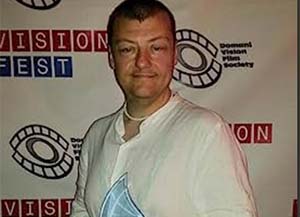 Since graduating from my Ultimate Acting Programme, Damien Gerard relocated to Los Angeles and has appeared in Our Flag Means Death (HBO), Three Days To Live (NBC Universal), Isolation (Apple TV)
Since graduating from my Ultimate Acting Programme, Damien Gerard relocated to Los Angeles and has appeared in Our Flag Means Death (HBO), Three Days To Live (NBC Universal), Isolation (Apple TV)
This is what he had to say about the programme:
“The Ultimate Acting Programme will help you to remove your blocks and give you the tools you need to nail those auditions. Thanks to Brian’s help, I secured the lead role in a US-funded feature film called Culture Shock purely by approaching the audition differently from everyone else and standing out to the casting director. Brian is an amazing teacher and you will not only learn how to be more authentic and ‘real’ on stage but he will teach you the often ignored business side of the industry too.” – Damien Gerard
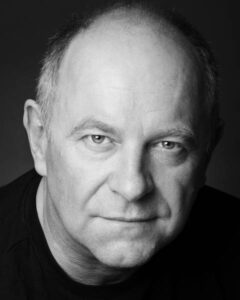 Graduating from the Ultimate Acting Programme, Victor Ptak won Best Actor at the London Film Festival for his role in Kid Gloves.
Graduating from the Ultimate Acting Programme, Victor Ptak won Best Actor at the London Film Festival for his role in Kid Gloves.
This is what he said about the programme.
“The Ultimate Acting Programme is life changing, empowering and above all it works. You bring your life experiences and the UAP will give you the tools to turn these into authentic performances. Everyone should be involved in acting, the skills are transferrable to every walk of life, and if you take away a tenth of what is being taught you will become a better person for it.” – Victor Ptak
Angela Walters graduated from the Ultimate Acting Programme and won a role on Emmerdale playing Dr. Lighton and a role in the feature film Mob Handed.
This is what she said about the programme:
“I choose the Method because you can be who you really are. You can tap into your own emotions and experiences and project that on to the screen or on the stage. It’s changed me in a massive way. It’s absolutely brilliant!” – Angela Walters
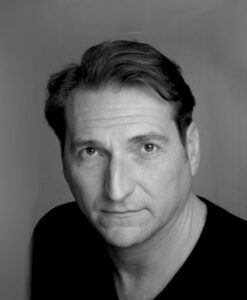 Tim Charles was previously a barrister and decided to change careers. Graduating from the Ultimate Acting Programme, he won a role in a major feature film called Bitter Harvest, starring Terence Stamp and a role opposite Tom Hardy in the BBC TV series Taboo. This is what he had to say:
Tim Charles was previously a barrister and decided to change careers. Graduating from the Ultimate Acting Programme, he won a role in a major feature film called Bitter Harvest, starring Terence Stamp and a role opposite Tom Hardy in the BBC TV series Taboo. This is what he had to say:
“I will forever be thankful to Brian for letting me have a go… he has given me the kick-start I needed.” – Tim Charles


